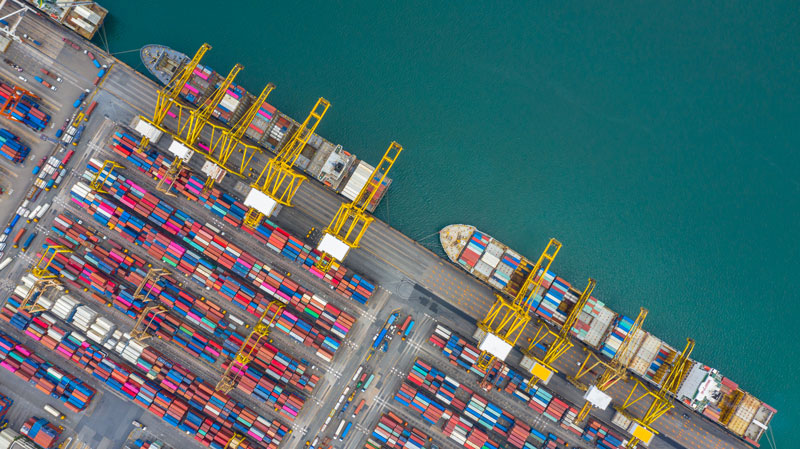

As the situation in the Red Sea eases, the market will face potential downward pressure
In the current global shipping market, the impact of the Red Sea crisis on the container ship market has become a topic of widespread concern in the industry. Thomas Lister, CEO of NYSE-listed container Ship owner Global Ship Lease, acknowledged in a new interview that the market would face potential downward pressure if the situation in the Red Sea were to ease.
While there is no immediate solution to the conflict in the Middle East, the industry is cautiously assessing the possible market outcomes if the situation improves.
"The prospect of a short-term reopening seems remote," Lister said of the situation in the Red Sea. He noted that from what is being learned in the news, it is less likely that the Red Sea will return to normal in the short term. Once calm returns, however, the dynamics between supply and demand are bound to change. At the time of the crisis, about a third of the world's container fleet was diverted through the Cape of Good Hope, a shift equivalent to a reduction of about 10 per cent of global capacity, a significant impact for the overall market.
"Secondly, shipping companies have increased the speed of their ships to compensate for the long distances caused by detour. This acceleration increases capacity to some extent, but it also raises fuel consumption and emissions costs. If the disruption in the Red Sea is resolved, operators will reduce ship speeds, which will limit the release of additional capacity in the market." Thomas Lister added.
Discussing current market dynamics, Thomas Lister described the charter environment as "tight" with less than 1% of spare capacity "supported by revenue in such constrained supply conditions."
Daily container ship rentals surged in the first half of the year and have since levelled off, but charterers' behaviour suggests optimism about future market conditions. According to Thomas Lister, charterers are beginning to book ships in advance even before 2025, indicating their confidence in the demand for cargo transportation.

While there is no immediate solution to the conflict in the Middle East, the industry is cautiously assessing the possible market outcomes if the situation improves.
"The prospect of a short-term reopening seems remote," Lister said of the situation in the Red Sea. He noted that from what is being learned in the news, it is less likely that the Red Sea will return to normal in the short term. Once calm returns, however, the dynamics between supply and demand are bound to change. At the time of the crisis, about a third of the world's container fleet was diverted through the Cape of Good Hope, a shift equivalent to a reduction of about 10 per cent of global capacity, a significant impact for the overall market.

"Secondly, shipping companies have increased the speed of their ships to compensate for the long distances caused by detour. This acceleration increases capacity to some extent, but it also raises fuel consumption and emissions costs. If the disruption in the Red Sea is resolved, operators will reduce ship speeds, which will limit the release of additional capacity in the market." Thomas Lister added.
Discussing current market dynamics, Thomas Lister described the charter environment as "tight" with less than 1% of spare capacity "supported by revenue in such constrained supply conditions."
Daily container ship rentals surged in the first half of the year and have since levelled off, but charterers' behaviour suggests optimism about future market conditions. According to Thomas Lister, charterers are beginning to book ships in advance even before 2025, indicating their confidence in the demand for cargo transportation.





